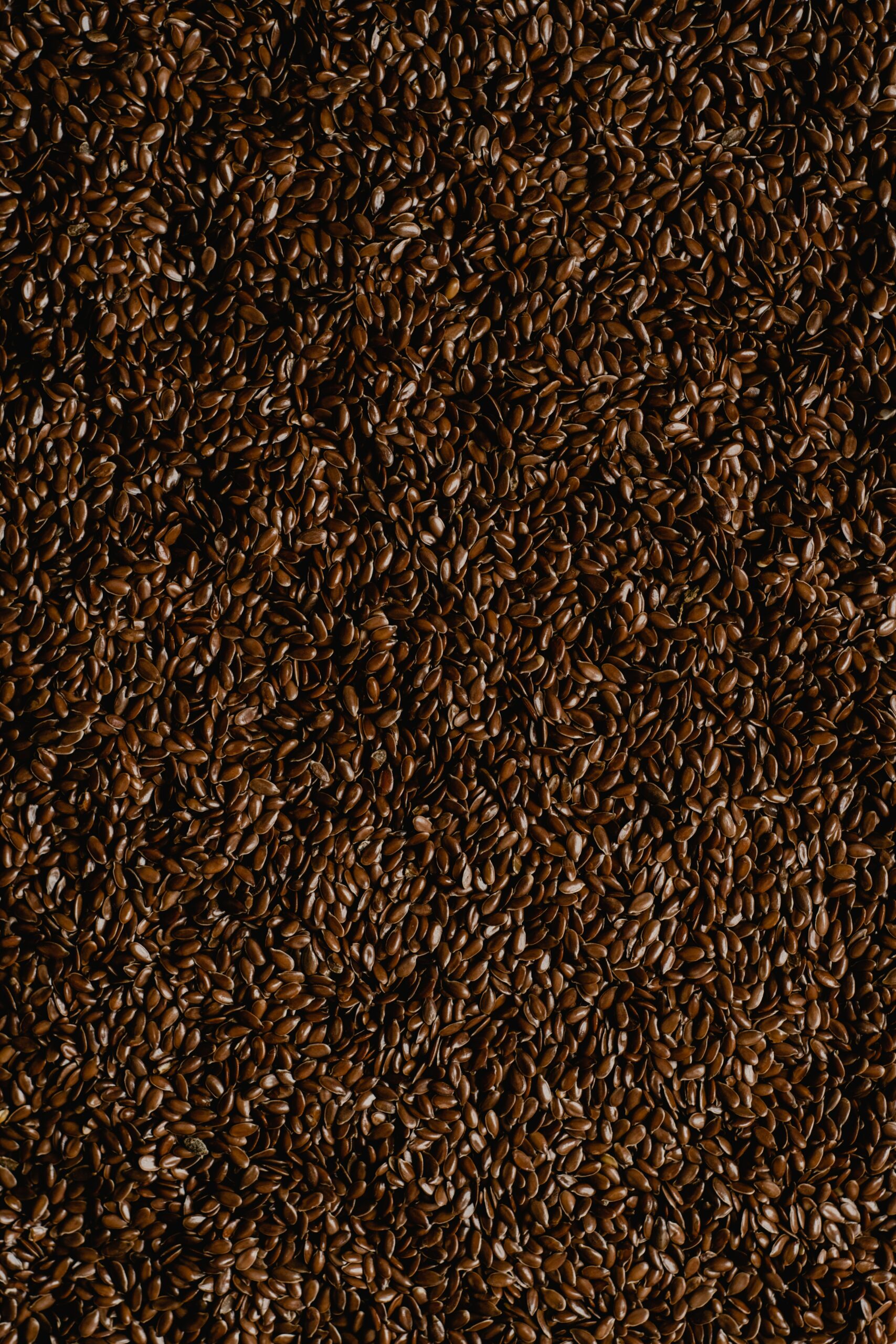Flaxseeds are a rich source of omega-3 fatty acids which is great for managing PCOS symptoms. Read on to find out more about this super seed!
What Are the Different Types?
There are 2 types of flax seeds, brown and golden and both are available in the Indian market. Most people find that dark brown seeds have a more robust flavour than golden seeds. Both are rich in alpha-linolenic acid, although the dark seeds are slightly higher in ALA than the golden variety.
Even though you can consume flaxseeds in powder form and their original form, for a more concentrated dose of all the benefits, many people rely on flaxseed oil, which is extracted oil from the seed. Since it’s an oil, it’s richer than ground flaxseed, but it’s a wonderful supplement on its own. One teaspoon of flaxseed oil contains approximately 40 calories. You can also apply flaxseed oil directly on the skin to balance out minor skin problems. It is advised to store flaxseed in dark spaces and use it within the expiry since flaxseed, flaxseed meal and flaxseed oil are all light-sensitive and can degrade with prolonged exposure to light. Whole flax seeds can be kept at room temperature for up to a year, but once they are ground, the flaxseed meal should be used as soon as possible. Flaxseed oil can also go rancid if not used efficiently. Try to purchase smaller amounts of oil and pre-ground meal, and use what you grind in a short amount of time.
What Are the Benefits of Flaxseed?
- Flaxseeds are rich in Omega-3 essential fatty acids, which are known as the “good” fats that have been shown to have heart-healthy effects on PCOS symptoms. Various research indicates that flaxseed could reduce the risk of cardiovascular disease that can be caused by PCOS and certain types of cancer, like prostate cancer and breast cancer. Along with that, it keeps your skin, nails and hair shiny and healthy.
- Flaxseed is the highest source of lignans; it contains 75 to 800 times more lignans than other plant foods. Lignans have both plant oestrogen and antioxidant qualities, and they promote hormonal balance. The lignans in flaxseeds may help both menopausal and postmenopausal women alike who have PCOS.
- Flaxseed contains both soluble and insoluble fibre, which can help regulate blood sugar, promote weight loss and prevent constipation. Soluble fibre can also help reduce LDL cholesterol levels.
- Polyunsaturated fatty acids such as alpha-linolenic acid are also found in flaxseeds. The alpha-linolenic acid and related chemicals present in flaxseed oil seem to have anti-inflammatory properties. That is why flaxseed oil is helpful for rheumatoid arthritis and other inflammatory diseases.
Balancing Your Hormones
Flaxseeds are particularly high in phytoestrogens called “lignans.” Phytoestrogens are a type of polyphenol that can weakly bind to oestrogen receptors in the body. Phytoestrogens have both an estrogenic and anti-estrogenic effect, so they can raise or lower oestrogen in the body as needed depending on the target tissue. Phytoestrogens have a greater affinity to beta-oestrogen receptors which have protective and balancing effects. One study showed that the beneficial effects of phytoestrogens from flax seeds were even stronger than those from soy. Due primarily to the phytoestrogen content, flax seeds have been found especially helpful in the prevention of breast cancer as well as cyclical breast pain.
Blood sugar dysregulation is often a root cause of hormonal imbalances which are very commonly seen in women with PCOS. A review of over 25 different studies has confirmed that flaxseed consumption can help decrease blood sugar levels and decrease insulin resistance. This is likely due to the soluble fibre which has a profound impact on blood sugar. As insulin resistance is one of the main driving factors behind weight gain, flax seeds have also been shown to be beneficial in aiding weight loss. The soluble fibre in flaxseeds also increases feelings of satiety or fullness which leads to less overeating and greater weight loss.
Do Flax Seeds Help With Weight Loss?
Flax seeds are rich in fibre and when you eat foods that are rich in fibre, you feel full after eating less and remain full for a longer time. This can help suppress your desire to eat if you’re cutting calories for weight loss. Additionally, your digestive tract is stimulated by foods rich in fibre.
Eating fibre-rich foods like flax seeds is essential for the healthy functioning of your colon and keeping your colon free of obstructions. It’s also instrumental in stabilising blood sugar and, yes, helping you reach a healthy weight. Researchers are finding that lignin has many benefits that they were previously unaware of. And flaxseeds are rich in this material.
How To Incorporate More Flax Into Your Diet
You can increase the absorption of the lignans from 28% to 43% by crushing or milling the flaxseed before eating. Eating whole flaxseed does not allow for the same absorption of alpha-linolenic acid, a type of omega-3 fatty acid, as flax oil or ground flax.
1. Flaxseeds tea
You can add these seeds in powder form to your tea, and drink it in the form of a beverage
Ingredients:
1.5 cups water
1 tbsp flaxseed powder
Cinnamon
Honey (to taste)
2. Flaxseeds and yoghurt
We know flax seeds work well for weight loss, but did you know yoghurt is a protein-rich source, which speeds up metabolism and also keeps you satiated for longer? And when yoghurt is mixed with flaxseeds, it makes a perfect recipe for weight loss.
3. Flaxseed oil
Flaxseed oil as mentioned above is packed with several health benefits. It is a rich source of alpha-linolenic acid. The body converts these essential polyunsaturated fatty acids to omega-3 fatty acids that are anti-inflammatory and may help with weight management. This oil can also improve your heart health and help treat constipation. Therefore, flaxseed oil can be a great choice to replace other oils when you’re cooking to benefit your weight loss goal.
Learn More With Veera
Flax seeds can be beneficial for weight loss because of their unique nutritional properties. While they carry real benefits, they’re not a magic ingredient. Flax seeds work best as a complement to a healthy diet and exercise routine, not in place of one. Talk to the experienced care managers at Veera Health to learn more.


















